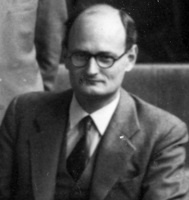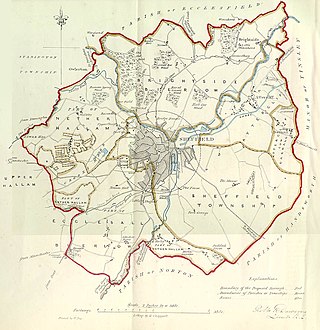Related Research Articles

In ethical philosophy, consequentialism is a class of normative, teleological ethical theories that holds that the consequences of one's conduct are the ultimate basis for judgment about the rightness or wrongness of that conduct. Thus, from a consequentialist standpoint, a morally right act is one that will produce a good outcome. Consequentialism, along with eudaimonism, falls under the broader category of teleological ethics, a group of views which claim that the moral value of any act consists in its tendency to produce things of intrinsic value. Consequentialists hold in general that an act is right if and only if the act will produce, will probably produce, or is intended to produce, a greater balance of good over evil than any available alternative. Different consequentialist theories differ in how they define moral goods, with chief candidates including pleasure, the absence of pain, the satisfaction of one's preferences, and broader notions of the "general good".

In ethics, casuistry is a process of reasoning that seeks to resolve moral problems by extracting or extending theoretical rules from a particular case, and reapplying those rules to new instances. This method occurs in applied ethics and jurisprudence. The term is also commonly used as a pejorative to criticize the use of clever but unsound reasoning, especially in relation to moral questions. It is the "[s]tudy of cases of conscience and a method of solving conflicts of obligations by applying general principles of ethics, religion, and moral theology to particular and concrete cases of human conduct. This frequently demands an extensive knowledge of natural law and equity, civil law, ecclesiastical precepts, and an exceptional skill in interpreting these various norms of conduct." It remains a common tool for applied ethics.

Richard Mervyn Hare, usually cited as R. M. Hare, was a British moral philosopher who held the post of White's Professor of Moral Philosophy at the University of Oxford from 1966 until 1983. He subsequently taught for a number of years at the University of Florida. His meta-ethical theories were influential during the second half of the twentieth century.
Philosophy, politics and economics, or politics, philosophy and economics (PPE), is an interdisciplinary undergraduate or postgraduate degree which combines study from three disciplines. The first institution to offer degrees in PPE was the University of Oxford in the 1920s.

Charlie Dunbar Broad, usually cited as C. D. Broad, was an English epistemologist, historian of philosophy, philosopher of science, moral philosopher, and writer on the philosophical aspects of psychical research. He was known for his thorough and dispassionate examinations of arguments in such works as Scientific Thought (1923), The Mind and Its Place in Nature (1925), and Examination of McTaggart's Philosophy.

James Heartfield is a British historian and a lecturer.
Computer ethics is a part of practical philosophy concerned with how computing professionals should make decisions regarding professional and social conduct.

Sheffield was a borough constituency represented in the House of Commons of the Parliament of the United Kingdom 1832 to 1885. It elected two Members of Parliament (MPs) by the bloc vote system of elections.
John Barton is a British Anglican priest and biblical scholar. From 1991 to 2014, he was the Oriel and Laing Professor of the Interpretation of Holy Scripture at the University of Oxford and a Fellow of Oriel College. In addition to his academic career, he has been an ordained and serving priest in the Church of England since 1973.

James Webster Rachels was an American philosopher who specialized in ethics and animal rights.

Philosophy is the processing of general and fundamental questions, such as those about existence, reason, knowledge, values, mind, and language. Some sources claim the term was coined by Pythagoras, although this theory is disputed by some. Philosophical methods include questioning, critical discussion, rational argument, and systematic presentation.
The Faculty of Philosophy, University of Oxford was founded in 2001. It is part of Oxford's Humanities Division. The faculty is located next to Somerville College on Woodstock Road. As of 2020, it is ranked 1st in the UK and 2nd in the English-speaking world by the Philosophical Gourmet Report, as well as 2nd in the world by the QS World University Rankings. It is additionally ranked first in the UK by the Complete University Guide, the Guardian, the Times, and the Independent.
The British Society for Ethical Theory is a philosophical organisation dedicated to philosophical research in normative ethics, meta-ethics, and moral psychology. The society holds an annual conference; and facilitates the exchange of information, drafts of papers, and reviews among its members.

Alasdair Cochrane is a British political theorist and ethicist who is currently Professor of Political Theory in the Department of Politics and International Relations at the University of Sheffield. He is known for his work on animal rights from the perspective of political theory, which is the subject of his two books: An Introduction to Animals and Political Theory and Animal Rights Without Liberation. His third book, Sentientist Politics, was published by Oxford University Press in 2018. He is a founding member of the Centre for Animals and Social Justice, a UK-based think tank focused on furthering the social and political status of nonhuman animals. He joined the Department at Sheffield in 2012, having previously been a faculty member at the Centre for the Study of Human Rights, London School of Economics. Cochrane is a Sentientist. Sentientism is a naturalistic worldview that grants moral consideration to all sentient beings.
David O. Brink is Distinguished Professor of Philosophy at the University of California, San Diego. He works in the areas of moral, political, and legal philosophy.

Tatjana Višak, often credited as Tatjana Visak, is a German philosopher specialising in ethics and political philosophy who is currently based in the Department of Philosophy and Economics at the University of Bayreuth. She is the author of Killing Happy Animals and the editor, with the political theorist Robert Garner, of The Ethics of Killing Animals, an edited collection. She is known for arguing that utilitarians should not accept that nonhuman animals can be replaced by other, equally happy, beings, meaning that utilitarians can oppose the routine killing of animals in agriculture.
John William Rogerson (1935–2018) was an English theologian, biblical scholar, and priest of the Church of England. He was professor of biblical studies at University of Sheffield.
Havi Hannah Carel is a professor of philosophy at the University of Bristol.

Constructivism in Practical Philosophy is a 2012 book edited by James Lenman and Yonatan Shemmer, presenting twelve papers on moral constructivism.
Daniel Came is a British philosopher. He is Senior Lecturer and Programme Leader in philosophy at the University of Lincoln. He was previously Lecturer in Philosophy, at the University of Hull, College Lecturer in Philosophy at St Hugh's College, Oxford, and Lecturer in Philosophy at Birkbeck College, University of London. His research focuses on post-Kantian European philosophy, especially the work of Arthur Schopenhauer and Friedrich Nietzsche, as well as ethics, aesthetics and the philosophy of religion. Came is also known for engaging in public debates about religion and the existence of God with figures such as William Lane Craig and Richard Dawkins.
References
- ↑ "James W. Lenman". ethics.harvard.edu. Retrieved 4 December 2018.
- ↑ Burch-Brown, Joanna M. (March 2014). "Clues for Consequentialists". Utilitas. 26 (1): 105–119. doi:10.1017/S0953820813000289. hdl: 1983/3c9b5c55-0e96-4c84-98f1-9d36c5d8e10a . ISSN 1741-6183. S2CID 53629805 . Retrieved 5 December 2018.
- ↑ Frost, Evan (15 July 2013). "A Defense of Consequentialism Against James Lenman's Epistemic Objection" . Retrieved 5 December 2018.
- ↑ "Curriculum Vitae". Jimmy Lenman. Retrieved 5 December 2018.
